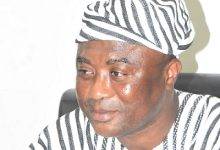PAccording to the Global Partnership for Education (GPE), education plays a key role in human, social, and economic development. It is also considered to be a human right and plays a key role in human, social, and economic development.
In addition, education promotes gender equality, promotes peace, and increases a person’s chances of having more opportunities in life.
It is, in recognition of this that, successive government’s prioritised education and committed a large portion of national resources to fund education of Ghanaian children.
In pursuance of a deliberate education policy, the 1992 Constitution mandated governments to implement the Free Compulsory Basic Education Programme (FCUBE) which was introduced in 1995. In addition successive governments provided Senior High School (SHS) students in the three Northern Regions some form of scholarships and feeding grants.
This was to boost the education of children in that part of the country, considered to be less endowed. In spite of the support and the encouragement, literacy standards and learning outcomes still remain poor, despite increased enrolment rates in recent years.
According to available statistics, the results of students in the past 10 years, both Basic Education and Certificate Examination (BECE) and West Africa Senior Secondary Certificate Examination (WASSCE), have not been encouraging.
The records show that, the results of the two examinations in Northern Ghana, has been on a steady decline in the last decade, putting the performance of the students at the bottom of BECE and WASSCE performance ladder.
This according to Ibrahim Mohammed Awal, Minister for Business Development is unacceptable and needed for something urgent to be done to address the problem.
He lamented that for the past ten years, results of students, both BECE and WASSCE was not encouraging and that something urgent ought to be done to address the problem.
Dr Awal therefore, called on educationists, politicians and parents to dialogue in order to map out strategies to improve academic performance of the students in the area.
He blamed the terrible academic performance partly on parents, students and teachers and called for dedication from all stakeholders to reverse the trend.
The Ghanaian Times cannot agree more with Dr Awal in that the nation is committing enormous resources into the education of the youth and the least that can be expected is for them to take advantage of the opportunity and pass their exams well.
As mentioned already, there are challenges including indiscipline, dedication to duty by teachers among others that has to be overcome. We do not see these as insurmountable obstacles.
Rather, what is important is getting the students to pass their examinations and becoming responsible citizens in future.
It is no gainsaying repeating the fact that the youth are the future of the country and if we are to achieve sustainable development, more attention should be paid to them now.
The poor performance must be reversed now.






